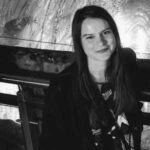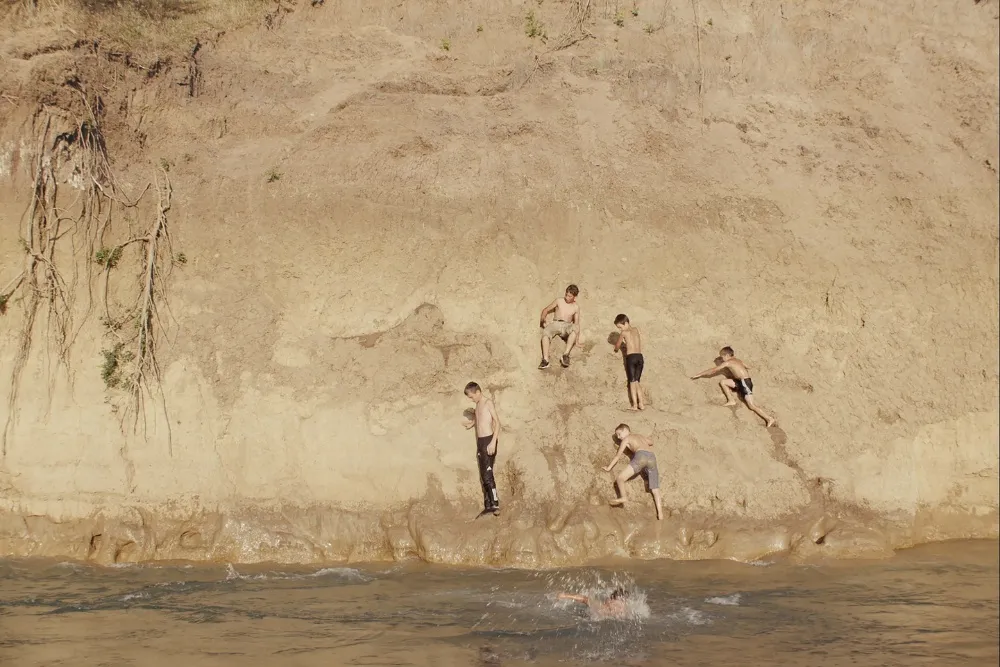Imago
Imago
VERDICT: In the gorgeously subtle and poetic doc 'Imago', Déni Oumar Pitsaev visits Pankisi to explore what kind of home it can be for the dreams of Chechnya’s displaced.
Chechnya-born director Déni Oumar Pitsaev, who has been living in France, takes a trip to the Georgian valley of Pankisi and the small patch of land that he has inherited in Imago, a beautifully sensitive and subtle documentary screening in the Kinoscope section of the Sarajevo Film Festival.
Many refugees who fled Chechnya during the series of wars that started in the ‘90s have made new homes in Pankisi, which is just over the mountain and is as close as they can feel to a homeland that is still too dangerous and politically volatile for them to return to, and the director mulls over, at the age of forty, whether he should also resettle there. The slow and oblique nature of the film, which won the Golden Eye Award for Best Documentary and the French Touch Prize at Cannes, where it premiered in Critics’ Week, requires concentration and may limit its commercial prospects, but its unforced lyricism and fresh, multi-layered reflections on the dreams of the displaced, in a region of the Caucasus too often reduced to heavyhanded media depictions, should easily find it passionate fans in festival audiences.
Déni dreamed as a child of building a treehouse in Chechnya, and has brought architectural plans along on his journey to consider whether he can feasibly construct his imagined residence in Pankisi, or whether he should sell the plot. A-frame and elevated high above the ground, it would be quite a departure from the usual homes there, and the sketches cause some puzzlement among tradition-bound locals. This disjuncture between set ways and an abstract fantasy of utopia is just one aspect of a whole tangle of conflicting, deeply rooted and overwhelming emotions for Déni around the themes of nostalgia, place and identity. As he spends time with close relatives he has not seen for some time, he revisits memories from the vantage point of age and bonds complicated by trauma, in a poetic, highly personal film that is full of searching questions about what dreams and freedom really mean for those who are lost without a homeland, and still harbouring the pain of forced separations.
A key conversation towards the end between Déni and his father is edged with buried resentments. His long absent dad, who is now remarried with another family, touches on the brutal 1995 Samaskhi massacre of civilians in the First Chechen War, elucidating some of the underlying currents of historical unease and fear through oppression that haunt the Chechen diaspora. Déni’s parents divorced when he was small, and he moved to Russia for a time with his mother, who urged him to adopt a new name to hide his Chechen identity and alleviate the rampant bullying at school. Déni’s thinking comes from “over there” in the west, his father tells him, underscoring the sense of belonging not fully here nor there that the filmmaker, like many immigrants, grapples with, and the gulf in values that has grown in all his years away from Grozny.
As the Muslim call to prayer sounds out throughout the day from the local mosques, and the trees teem with natural life, Deni chats with groups of Pankisi men and women, who tend to socialise separated by gender, about their beliefs and dreams, with a good-humoured curiosity that is reciprocated in kind, but comes with relentless quizzing on when he will get married. The title comes from the final stage of development in larval metamorphosis, which sometimes never occurs. To become a Chechen man in Pankisi, there’s a clear route of respected tradition — but the crux for whether Déni can see a future blooming here, we come to understand, is the valley’s not so certain capacity to embrace variations on that path that have been nurtured in introspection and immigration. Unsensationalised in its gentle observations, but unflinching in its attention to what has previously been left unspoken, this is a film with a potent emotional undercurrent that is allowed to take its own time, through episodes, to build.
Director: Déni Oumar Pitsaev
Screenwriters: Mathilde Trichet, Déni Oumar Pitsaev
Producers: Geraldine Sprimont, Anne-Laure Guégan, Alexandra Mélot
Cinematographers: Joachim Philippe, Sylvain Verdet
Editors: Dounia Sichov, Laurent Sénéchal
Sound design: Emmanuel De Boissieu, Hélène Clerc-Denizot, Joseph Squire, Marie Paulus, André Rigaut
Production companies: Triptyque Films (France), Need Productions (Belgium)
Sales: Rediance
Venue: Sarajevo (Kinoscope)
In Chechen, Russian, Georgian
109 minutes


